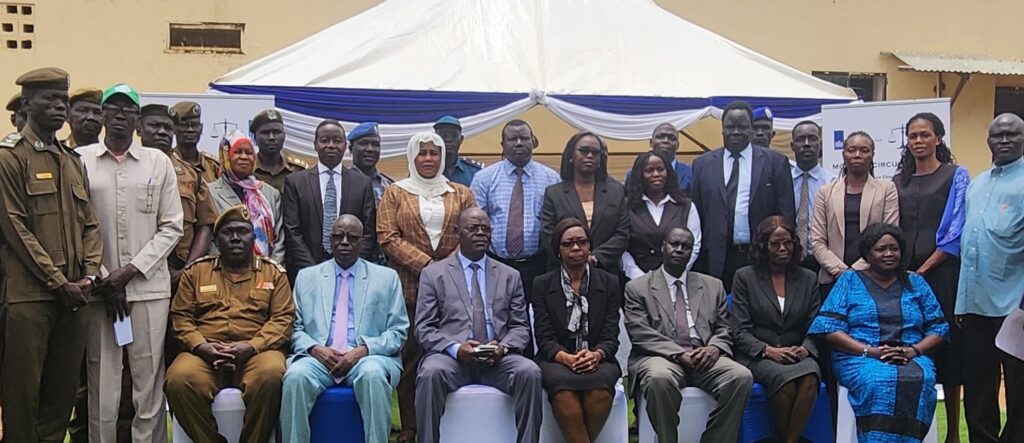South Sudan’s Judiciary, in collaboration with the United Nations Development Programme (UNDP), launched a mobile court Tuesday at Juba National Prison to expedite gender-based violence cases and reduce severe overcrowding.
The court is a direct response to what the country’s chief justice called an “overwhelming and inhuman” situation during a visit to the facility.
William Kaya Pacifico, Director of Training in the Judiciary, said the chief justice described the conditions as “a shame on the judiciary.”
“That is why he has taken it as his first priority,” Kaya said at the launch ceremony.
The initiative aims to clear a backlog of 129 prioritized cases involving GBV and juveniles by assigning four judges temporary high court powers. It seeks to address lengthy pre-trial detentions that contribute to prison congestion.
Catherine Walaiula, a technical advisor for UNDP in South Sudan, described the court as a “milestone in advancing justice, protecting human rights, and promoting gender equality.” She said it provides a dedicated forum for swift and sensitive adjudication.
GBV remains one of South Sudan’s most pressing human rights challenges, with survivors often facing stigma, delays and systemic barriers to justice.
Justice Malou Yel Akok, President of the Court of Appeal for the Greater Equatoria Circuit, urged judges and lawyers to avoid unnecessary postponements. “We don’t need delays… we want to see that more than half or three quarters of cases are settled,” he said.
Officials emphasized that reducing delays requires broader measures, including recruiting new judges, building more courtrooms and closer cooperation among justice sector institutions.
Major General Joseph Benjamin Moses, Director General of Juba National Prison, welcomed the mobile court but urged advocates to volunteer their services to help reduce case backlogs. He also stressed that justice efforts must extend beyond GBV cases to all inmates.
The project is supported by UNDP and funded by the Kingdom of the Netherlands.




